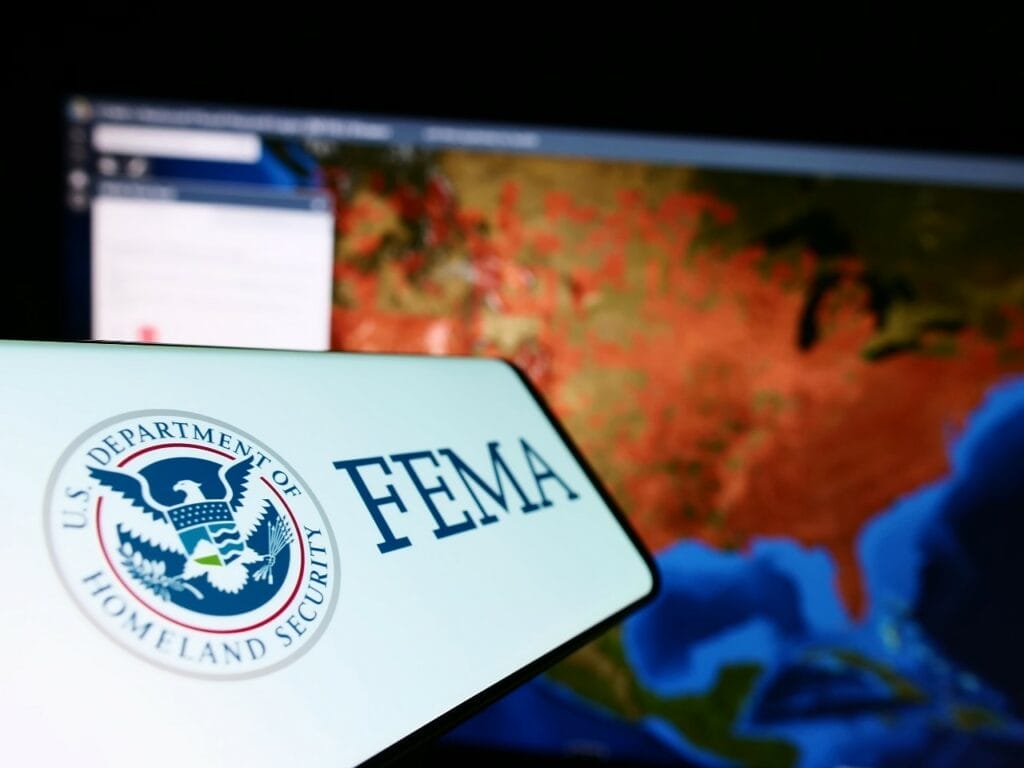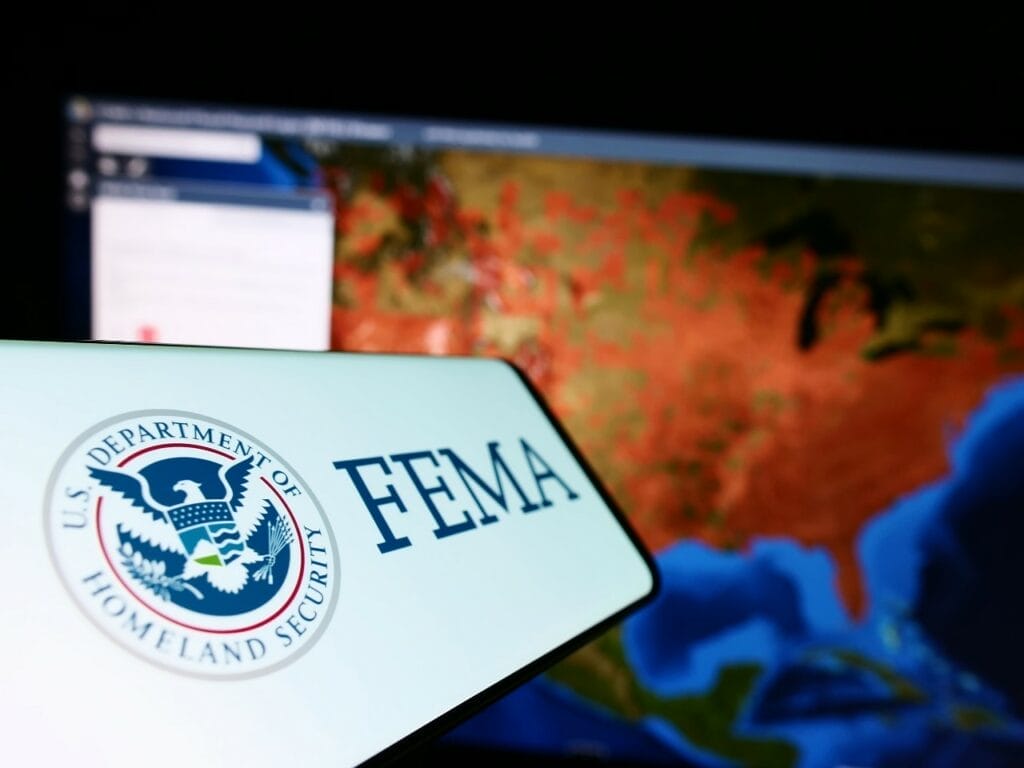This post originally appeared at https://www.badgerinstitute.org/wisconsin-less-disastrous-than-most-places-in-america/
Badger State has fewer declared disasters, receives less help from FEMA than most others
It might not feel like it when one of those rare Wisconsin tornadoes is whirring around the state at this time of year, but the truth is we are very, very lucky to live here. And the rest of disaster-ridden America is fortunate to have us living here as well.
We don’t get many forests fires the way they do in the south and west. We’re not tropical, so we don’t get tropical storms. True, we get floods and severe storms, but they aren’t nearly as disastrous — or expensive — as the stuff that happens in most of the rest of America.

We’ve had 54 declared disasters in this state since 1953, including 20 severe storms, 19 floods and six tornadoes serious enough to be declared disasters in need of aid from the Federal Emergency Management Agency (FEMA). (Most storms and tornadoes and floods, needless to say, are unpleasant and may be even somewhat destructive, but they aren’t big disasters the way FEMA defines them.)
California and Texas each had 375, in comparison. Oklahoma and Washington State each had over 200. Florida had 178. Oregon had 176 and New Mexico, New York, Arizona, Louisiana, Nevada and Colorado all had between 100 and 120.
Many of those states are bigger than we are, of course, or have more people and more property that can be damaged. But we crunched the FEMA data, took all that into account, and the fact is we’re still a very safe place.
We looked at all 50 states and Wisconsin is 39th — number one being the worst or most likely to get pummeled or burned — in declared disasters per 1000 square miles over the last 71 years. We’re 36th in disasters per hundred thousand people over the same period of time.
All emergency and major disaster declarations are made solely at the discretion of the President of the United States, according to FEMA.
“The President can declare a major disaster for any natural event, including any hurricane, tornado, storm, high water, wind-driven water, tidal wave, tsunami, earthquake, volcanic eruption, landslide, mudslide, snowstorm, or drought, or, regardless of cause, fire, flood, or explosion, that the President determines has caused damage of such severity that it is beyond the combined capabilities of state and local governments to respond.”
A major disaster declaration can unlock a wide range of federal assistance programs for both individuals and communities. We looked solely at FEMA Disaster Relief Fund spending in all states between 2017 and 2019.
Wisconsin received approximately $140 million over that time period, 32nd among the 50 states. On per capita basis, we were 38th.
A Brookings report last year concluded that experience navigating the system can be a factor and stated that “the overall trend has been in favor of more declarations.”
It’s possible, in other words, we’re not quite as adept at making our case, crying, or money-grubbing as many other places — although common sense says we really are a little safer, less susceptible to fires and hurricanes than Americans not smart enough to live here.
The fact is we’re an average state in terms of land area but a little larger than average by population. We’ll look at what we contribute to the federal government in another column on another day, but it appears we’re not only pretty safe, we’re a good deal for the rest of America as well.
Mike Nichols is the President of the Badger Institute, Wyatt Eichholz its Policy and Legislative Associate. Permission to reprint is granted as long as the author and Badger Institute are properly cited.
Submit a comment
“*” indicates required fields
/* = 0;if(!is_postback){return;}var form_content = jQuery(this).contents().find(‘#gform_wrapper_21’);var is_confirmation = jQuery(this).contents().find(‘#gform_confirmation_wrapper_21’).length > 0;var is_redirect = contents.indexOf(‘gformRedirect(){‘) >= 0;var is_form = form_content.length > 0 && ! is_redirect && ! is_confirmation;var mt = parseInt(jQuery(‘html’).css(‘margin-top’), 10) + parseInt(jQuery(‘body’).css(‘margin-top’), 10) + 100;if(is_form){jQuery(‘#gform_wrapper_21’).html(form_content.html());if(form_content.hasClass(‘gform_validation_error’)){jQuery(‘#gform_wrapper_21’).addClass(‘gform_validation_error’);} else {jQuery(‘#gform_wrapper_21’).removeClass(‘gform_validation_error’);}setTimeout( function() { /* delay the scroll by 50 milliseconds to fix a bug in chrome */ jQuery(document).scrollTop(jQuery(‘#gform_wrapper_21’).offset().top – mt); }, 50 );if(window[‘gformInitDatepicker’]) {gformInitDatepicker();}if(window[‘gformInitPriceFields’]) {gformInitPriceFields();}var current_page = jQuery(‘#gform_source_page_number_21’).val();gformInitSpinner( 21, ‘https://e74sq7k37a8.exactdn.com/wp-content/plugins/gravityforms/images/spinner.svg’, true );jQuery(document).trigger(‘gform_page_loaded’, [21, current_page]);window[‘gf_submitting_21’] = false;}else if(!is_redirect){var confirmation_content = jQuery(this).contents().find(‘.GF_AJAX_POSTBACK’).html();if(!confirmation_content){confirmation_content = contents;}jQuery(‘#gform_wrapper_21’).replaceWith(confirmation_content);jQuery(document).scrollTop(jQuery(‘#gf_21’).offset().top – mt);jQuery(document).trigger(‘gform_confirmation_loaded’, [21]);window[‘gf_submitting_21’] = false;wp.a11y.speak(jQuery(‘#gform_confirmation_message_21’).text());}else{jQuery(‘#gform_21’).append(contents);if(window[‘gformRedirect’]) {gformRedirect();}}jQuery(document).trigger(“gform_pre_post_render”, [{ formId: “21”, currentPage: “current_page”, abort: function() { this.preventDefault(); } }]); if (event && event.defaultPrevented) { return; } const gformWrapperDiv = document.getElementById( “gform_wrapper_21” ); if ( gformWrapperDiv ) { const visibilitySpan = document.createElement( “span” ); visibilitySpan.id = “gform_visibility_test_21”; gformWrapperDiv.insertAdjacentElement( “afterend”, visibilitySpan ); } const visibilityTestDiv = document.getElementById( “gform_visibility_test_21” ); let postRenderFired = false; function triggerPostRender() { if ( postRenderFired ) { return; } postRenderFired = true; jQuery( document ).trigger( ‘gform_post_render’, [21, current_page] ); gform.utils.trigger( { event: ‘gform/postRender’, native: false, data: { formId: 21, currentPage: current_page } } ); if ( visibilityTestDiv ) { visibilityTestDiv.parentNode.removeChild( visibilityTestDiv ); } } function debounce( func, wait, immediate ) { var timeout; return function() { var context = this, args = arguments; var later = function() { timeout = null; if ( !immediate ) func.apply( context, args ); }; var callNow = immediate && !timeout; clearTimeout( timeout ); timeout = setTimeout( later, wait ); if ( callNow ) func.apply( context, args ); }; } const debouncedTriggerPostRender = debounce( function() { triggerPostRender(); }, 200 ); if ( visibilityTestDiv && visibilityTestDiv.offsetParent === null ) { const observer = new MutationObserver( ( mutations ) => { mutations.forEach( ( mutation ) => { if ( mutation.type === ‘attributes’ && visibilityTestDiv.offsetParent !== null ) { debouncedTriggerPostRender(); observer.disconnect(); } }); }); observer.observe( document.body, { attributes: true, childList: false, subtree: true, attributeFilter: [ ‘style’, ‘class’ ], }); } else { triggerPostRender(); } } );} );
/* ]]> */
The post Wisconsin less disastrous than most places in America appeared first on Badger Institute.
